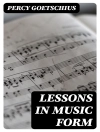In ‘Descriptive Analyses of Piano Works, ‘ Edward Baxter Perry offers an exhaustive exploration of significant piano compositions, blending musical analysis with vivid descriptive language. This scholarly work meticulously dissects a range of pieces, highlighting their structural nuances and emotive qualities. Perry adopts a critical yet accessible literary style, making complex musical concepts tangible for both students and seasoned musicians. Situated in the broader context of late 19th-century musicological scholarship, this book exemplifies a meticulous approach to musical criticism that parallels contemporary analytical trends while remaining rooted in its historical origins. Edward Baxter Perry was a prominent figure in the study of music during his era, known for his innovative teaching methods and profound understanding of piano repertoire. His extensive background as a pianist and educator likely informed his desire to create a work that not only elucidates the intricacies of piano music but also engages readers’ imaginations. Through his experiences, Perry sought to bridge the gap between technical analysis and artistic expression, thereby contributing significantly to music education and appreciation. This book is highly recommended for music students, educators, and enthusiasts alike, as it not only serves as a critical resource for performance and study but also cultivates a deeper appreciation for the artistry inherent in piano works. Perry’s insights will inspire readers to explore the emotional depth and architectural brilliance of the pieces he examines.
Про автора
Edward Baxter Perry (1855-1924) was an accomplished American pianist, composer, and music educator renowned for his lecture-recitals—a format which he helped popularize in the United States. Born in Massachusetts, Perry was blinded by an illness in infancy, which, however, did not impede his musical prowess. He studied under the tutelage of prominent instructors, including Joseph Giebner, Bernard Ziehn, and Julius Eichberg, which enabled him to cultivate a deep understanding of music that transcended visual barriers. As a widely traveled artist, he gave over 6000 lecture-recitals globally, whereby he combined performance with insightful exegesis of the pieces. His seminal work, ‘Descriptive Analyses of Piano Works’ (1902), underlines his pedagogical and analytical expertise, embodying his didactic approach to music education. In this treatise, Perry illuminates the essence of various piano masterpieces, offering performers and students a window into the interpretive depths of pieces beyond technical execution. With a literary style that is both erudite and accessible, Perry’s writings reflect his conviction in the interconnectedness of music with other arts and life experiences. Through his contributions as an author and lecturer, Perry significantly influenced piano pedagogy and the appreciation of classical music in America during the late 19th and early 20th centuries.












